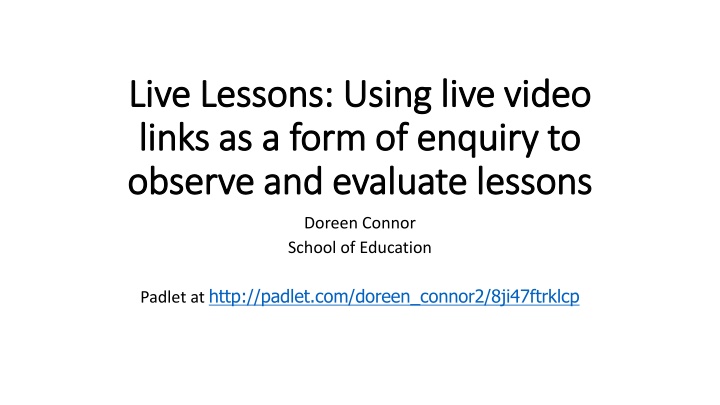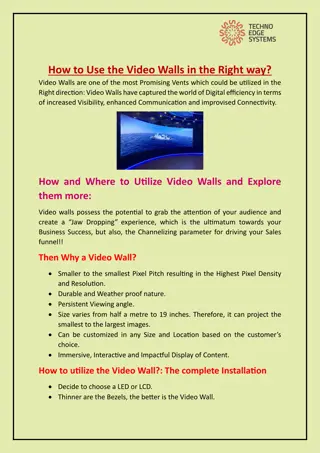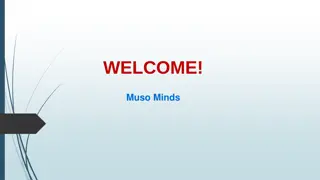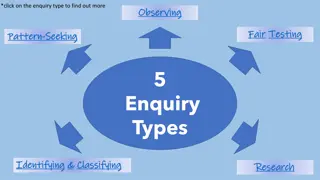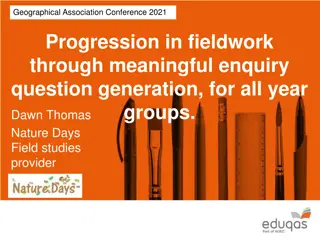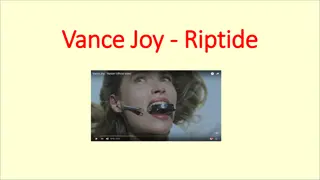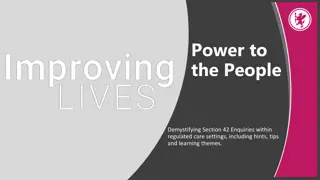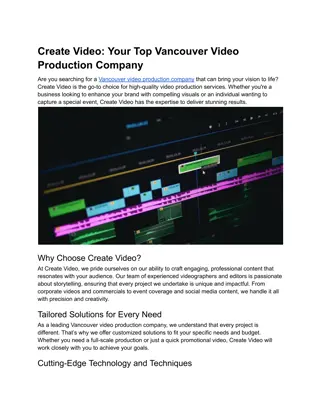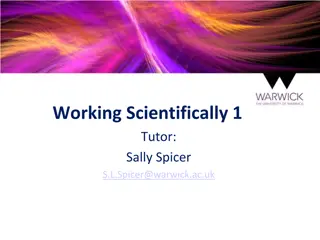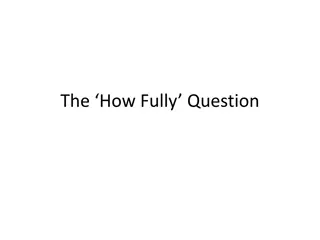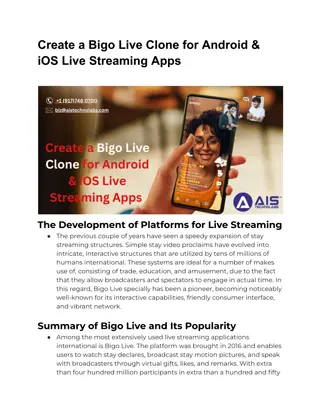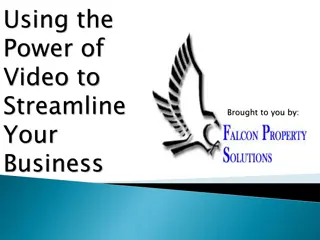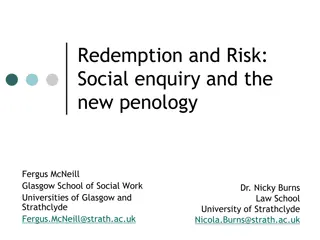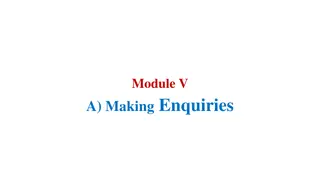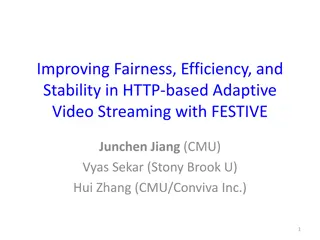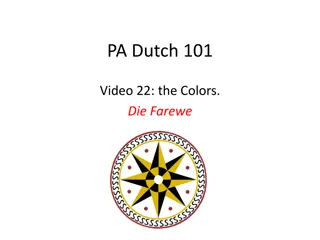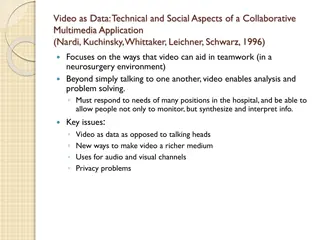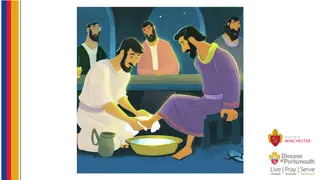Engaging in Live Video Enquiry to Enhance Lessons and Evaluation
Utilize live video links for observation and evaluation in educational settings. Explore the concept of enquiry versus inquiry, and delve into the benefits of inquiry-based learning advocated by educators like John Dewey. Understand how learners can tackle real-world challenges through collaboration, critical thinking, and deep understanding. Enhance teaching practices by reflecting on teacher-student interactions and fostering a research-based approach to learning.
Download Presentation

Please find below an Image/Link to download the presentation.
The content on the website is provided AS IS for your information and personal use only. It may not be sold, licensed, or shared on other websites without obtaining consent from the author.If you encounter any issues during the download, it is possible that the publisher has removed the file from their server.
You are allowed to download the files provided on this website for personal or commercial use, subject to the condition that they are used lawfully. All files are the property of their respective owners.
The content on the website is provided AS IS for your information and personal use only. It may not be sold, licensed, or shared on other websites without obtaining consent from the author.
E N D
Presentation Transcript
Live Lessons: Using live video Live Lessons: Using live video links as a form of enquiry to links as a form of enquiry to observe and evaluate lessons observe and evaluate lessons Doreen Connor School of Education Padlet at http://padlet.com/doreen_connor2/8ji47ftrklcp
Enquiry or inquiry? The traditional distinction between the verbs enquire and inquire is that enquire is to be used for general senses of ask , while inquire is reserved for uses meaning make a formal investigation . In practice, however, enquire, and the associated noun enquiry, are more common in British English while inquire (and the noun inquiry) are more common in US English, but otherwise there is little discernible distinction in the way the words are used. Both words derive from the Old French enquerre, from a variant of the Latin inquirere, based on quaerere 'seek'. The same root word can be seen in various modern English words, including acquire, require, request, and question. Oxford English Dictionary
Enquiry or inquiry? Deeper? Real world? Focused? Self evaluation
Inquiry based learning John Dewey, the American philosopher and progressive educator, held that inquiry was a natural way of thinking and motivation for learning. (Dewey 1910) and this view was further eschewed down through the constructionist theory of learnings through Bruner and Vygotsky. The power of an inquiry-based approach to teaching and learning is its potential to increase intellectual engagement and foster deep understanding through the development of a hands-on, minds-on and research-based disposition towards teaching and learning. Stephenson, N. (Inquiry Based learning accessed 17/2/2015)
Inquiry involves learners: tackling real-world questions, issues and controversies Viewing the lesson as it occurs means it is real and happening in real time developing questioning, research and communication skills How could the teacher have acted differently? What questions could they have asked? How are they using their body language to control? solving problems or creating solutions How is the teacher encouraging learner progress? How does this link to theory? collaborating within and beyond the classroom Working together, discussing and balancing arguments, looking for deeper meaning. developing deep understanding of content knowledge Focus on the mathematical learning and understanding occurring. How is this happening? participating in the public creation and improvement of ideas and knowledge How could the lesson be improved further?
Observers are able to work collaboratively in groups and discuss what is actually happening and consider the impacts the teacher actions are having on the learning taking place
Partnership? All trainees and tutors are partners in the learning and teaching happening in this scenario all can add their voices and the outcome is focused on improving the learning taking place. This equate extremely well with the thoughts of our keynote speaker:- Partnership offers the potential for a more authentic engagement with the nature of learning itself and the possibility for genuinely transformative learning experiences for all involved. Healey, M. ,Flint, A. Harrington, K (2014)
Active learning? Engaging students as teachers and assessors in the learning process is a particularly effective form of partnership. Healey, M. ,Flint, A. Harrington, K (2014) This is relatively easy for us in the school of education due to the nature of the subject under consideration but could it be extended to other areas?
Further Use? In what other situations could Live video links enhance the situation?
References Dewey, J. (1910). How we think. Boston, MA: Heath Healey, M. , Flint, A. , Harrington, K. (2014) Engagement through Partnership: students as partners in learning and teaching in higher education. York, Higher Education Academy Lee, Virginia S. The Power of Inquiry as a Way of Learning. (2011) Innovations in Higher Education 36:149 160 DOI 10.1007/s10755- 010-9166-4 Stephenson, N. Inquiry Based Learning: http://www.teachinquiry.com/ accessed 17/02/2015
